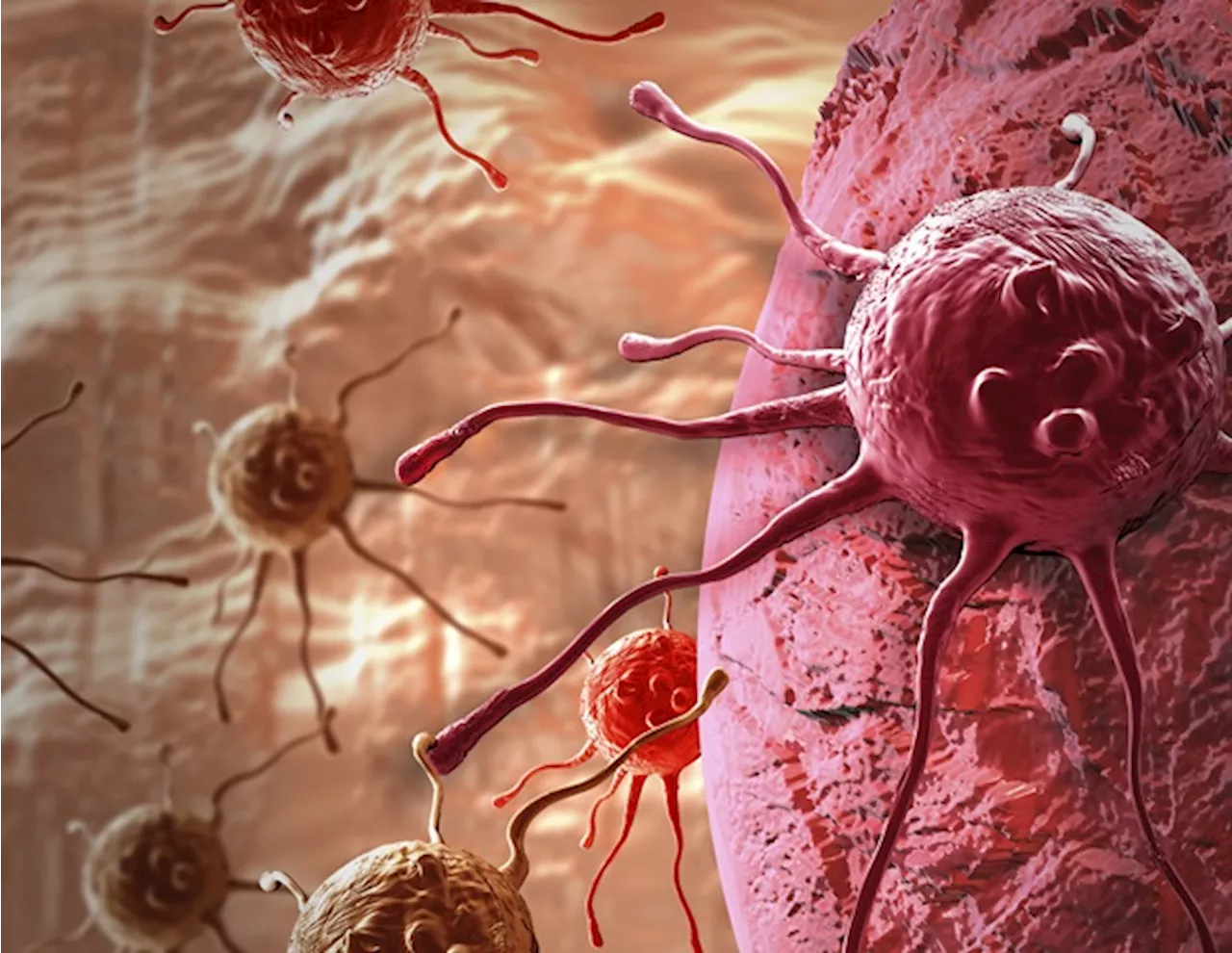Researchers at the German Cancer Research Center (DKFZ) have developed a novel method for growing patient-specific brain tumors in the laboratory. This groundbreaking approach, known as IPTO (Individualized Patient Tumor Organoid), has the potential to revolutionize cancer treatment by enabling more accurate prediction of patient responses to therapies.
Scientists from the German Cancer Research Center (DKFZ) and ShanghaiTech University have developed a groundbreaking method for cultivating patient-specific brain tumor s in the laboratory. This innovative approach, known as IPTO (Individualized Patient Tumor Organoid), generates miniature tumor models that closely replicate the original tumor's structure, molecular characteristics, and complex cellular interactions.
\Tumor organoids, which are mini-tumors grown from surgical tissue in a lab setting, have become increasingly popular in cancer research. Numerous research groups have already explored cultivating brain tumors, particularly aggressive glioblastomas, in the laboratory. However, replicating the intricate nature of these tumors has posed a significant challenge. Existing methods often fail to maintain crucial tumor properties over time or adequately represent the interactions between tumor cells and their surrounding environment. \The IPTO model overcomes these limitations by leveraging cerebral organoids – miniature 'brains' derived from induced human pluripotent stem cells. These organoids possess brain-like properties, providing a more realistic environment for cultivating patient-derived tumor samples. The researchers demonstrated the efficacy of IPTO in a study involving patient samples from hospitals in Heidelberg and Mannheim, Germany, and further validated it in a large cohort of brain tumor patients in Shanghai, China, in collaboration with ShanghaiTech University. \IPTO's ability to accurately predict patient responses to different therapies, including chemotherapy and targeted drugs, has made it a valuable tool for personalized medicine. In a prospective study of 35 glioblastoma patients, IPTOs successfully predicted the response to temozolomide, a key chemotherapeutic drug. This marks IPTO as the first brain tumor preclinical model capable of predicting patient response in a prospective clinical setting. \The versatility of the IPTO model extends to a wide range of central nervous system tumors, encompassing aggressive brain tumors like glioblastomas, as well as brain metastases, which occur in approximately 20 percent of all cancer patients. The researchers successfully cultured IPTOs from up to 48 tumor entities, including pediatric brain tumors, diverse forms of glioblastoma, and brain metastases originating from breast, lung, or colon cancer. \The team believes that the communication between neurons and cancer cells within the IPTO model may contribute to the growth of these tumors, reflecting recent advancements in cancer neuroscience. \Further research is underway to explore the potential of IPTOs for predicting the effectiveness of immunotherapies. The model's ability to accurately represent the immune cell population within the tumor microenvironment makes it a promising platform for this purpose. \Dr. Haikun Liu, the study's lead researcher, expressed enthusiasm about the widespread interest from medical professionals worldwide who are eager to utilize the IPTO model to identify the most effective treatment options for their patients more efficiently and reliably. \Dr. Liu and his colleagues have established a DKFZ spin-off company to advance the development and application of IPTOs. The team plans to collect high-quality molecular data from drug treatment experiments conducted using IPTOs. This data will be used to train advanced artificial intelligence models that may assist in identifying the optimal treatment strategies for brain cancer patients
Brain Tumor Cancer Research Personalized Medicine IPTO Treatment Response Immunotherapy
United Kingdom Latest News, United Kingdom Headlines
Similar News:You can also read news stories similar to this one that we have collected from other news sources.
 Belfast man shares his story of battling brain tumor twice and finding support after cancerCurtis Barrett, a 30-year-old Belfast man, bravely opens up about his two experiences with a brain tumor diagnosis. He recounts his initial diagnosis at 23, the subsequent relapse in 2021, and the vital support he received from Young Lives vs Cancer, a UK-based cancer charity. The article highlights Curtis's inspiring journey back to health, his marriage plans, and his involvement in promoting a post-cancer support day in Belfast.
Belfast man shares his story of battling brain tumor twice and finding support after cancerCurtis Barrett, a 30-year-old Belfast man, bravely opens up about his two experiences with a brain tumor diagnosis. He recounts his initial diagnosis at 23, the subsequent relapse in 2021, and the vital support he received from Young Lives vs Cancer, a UK-based cancer charity. The article highlights Curtis's inspiring journey back to health, his marriage plans, and his involvement in promoting a post-cancer support day in Belfast.
Read more »
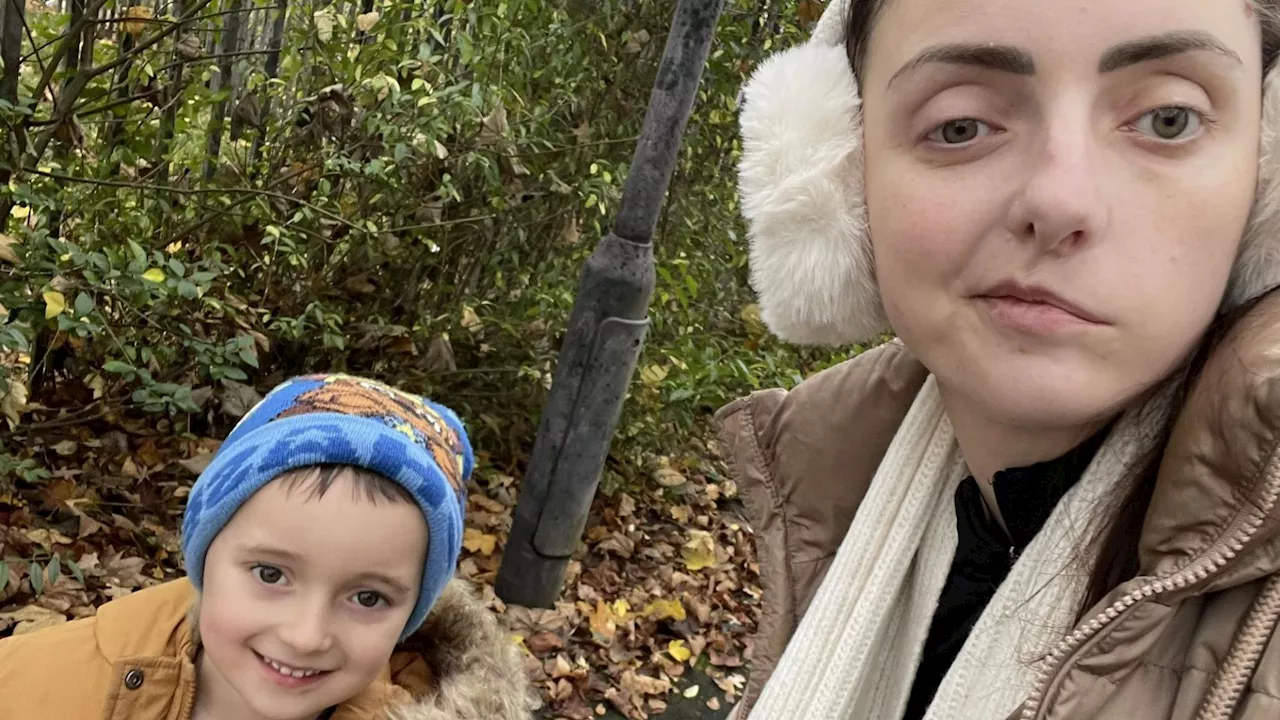 Brain Tumor Survivor Left Unable to Smile After SurgeryA woman shares her story of living with a benign brain tumor and the unexpected consequences of surgery, including facial palsy that left her unable to smile.
Brain Tumor Survivor Left Unable to Smile After SurgeryA woman shares her story of living with a benign brain tumor and the unexpected consequences of surgery, including facial palsy that left her unable to smile.
Read more »
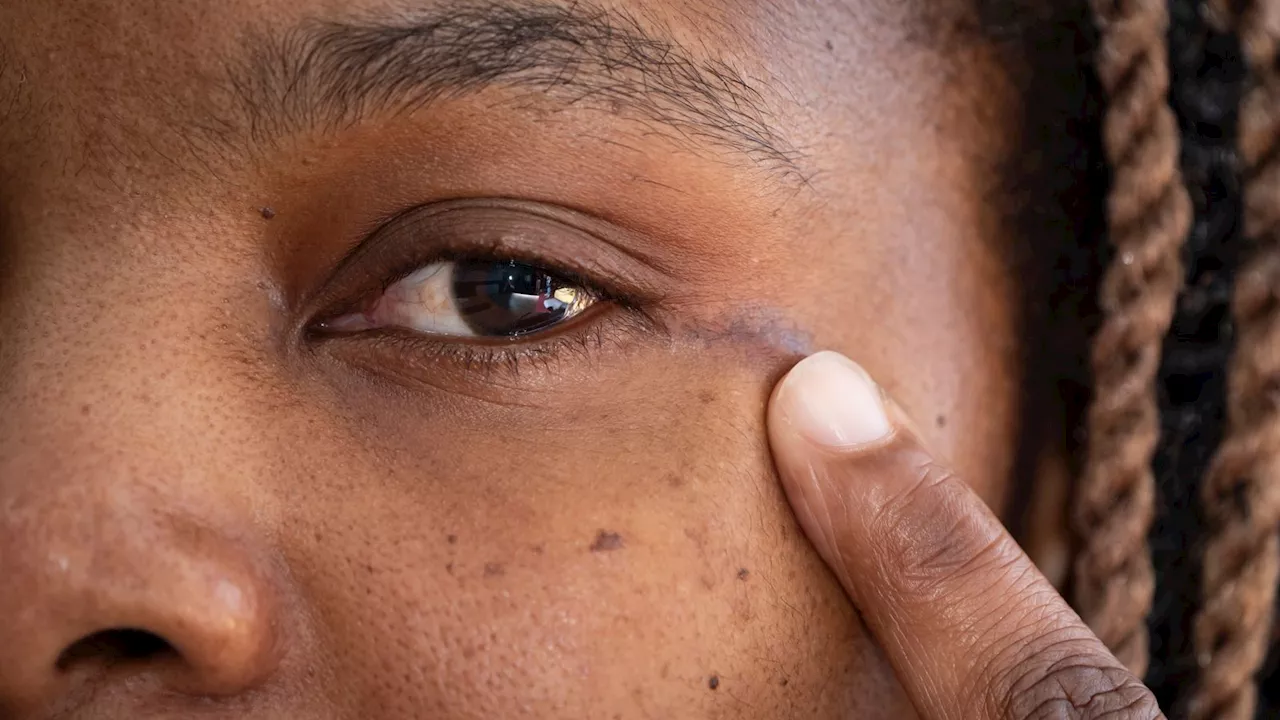 Groundbreaking Keyhole Surgery Removes Previously Inoperable Brain TumorA groundbreaking keyhole surgery, performed through the patient's eye socket, has successfully removed a brain tumor previously considered inoperable. This innovative technique offers a minimally invasive alternative to traditional procedures, providing faster recovery and reduced complications.
Groundbreaking Keyhole Surgery Removes Previously Inoperable Brain TumorA groundbreaking keyhole surgery, performed through the patient's eye socket, has successfully removed a brain tumor previously considered inoperable. This innovative technique offers a minimally invasive alternative to traditional procedures, providing faster recovery and reduced complications.
Read more »
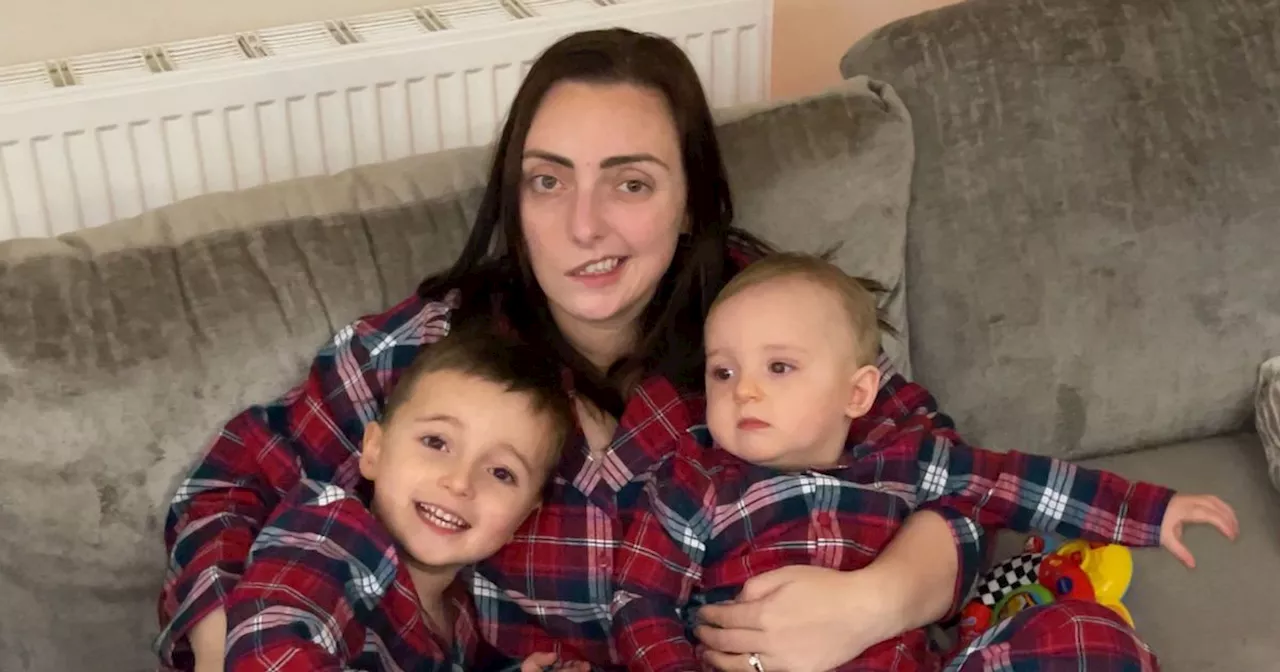 Scots mum diagnosed with brain tumor after dismissing twitching eye as stressJade-Marie Clark, from Glasgow, first began experiencing what she thought was an ear infection while pregnant with her first baby.
Scots mum diagnosed with brain tumor after dismissing twitching eye as stressJade-Marie Clark, from Glasgow, first began experiencing what she thought was an ear infection while pregnant with her first baby.
Read more »
 Davina McCall Prioritizes Quality Time With Michael Douglas After Brain Tumor RemovalFollowing a successful surgery to remove a rare brain tumor, Davina McCall is focusing on cherishing time with her partner, Michael Douglas. The experience has given her a new perspective on life and a renewed appreciation for her loved ones.
Davina McCall Prioritizes Quality Time With Michael Douglas After Brain Tumor RemovalFollowing a successful surgery to remove a rare brain tumor, Davina McCall is focusing on cherishing time with her partner, Michael Douglas. The experience has given her a new perspective on life and a renewed appreciation for her loved ones.
Read more »
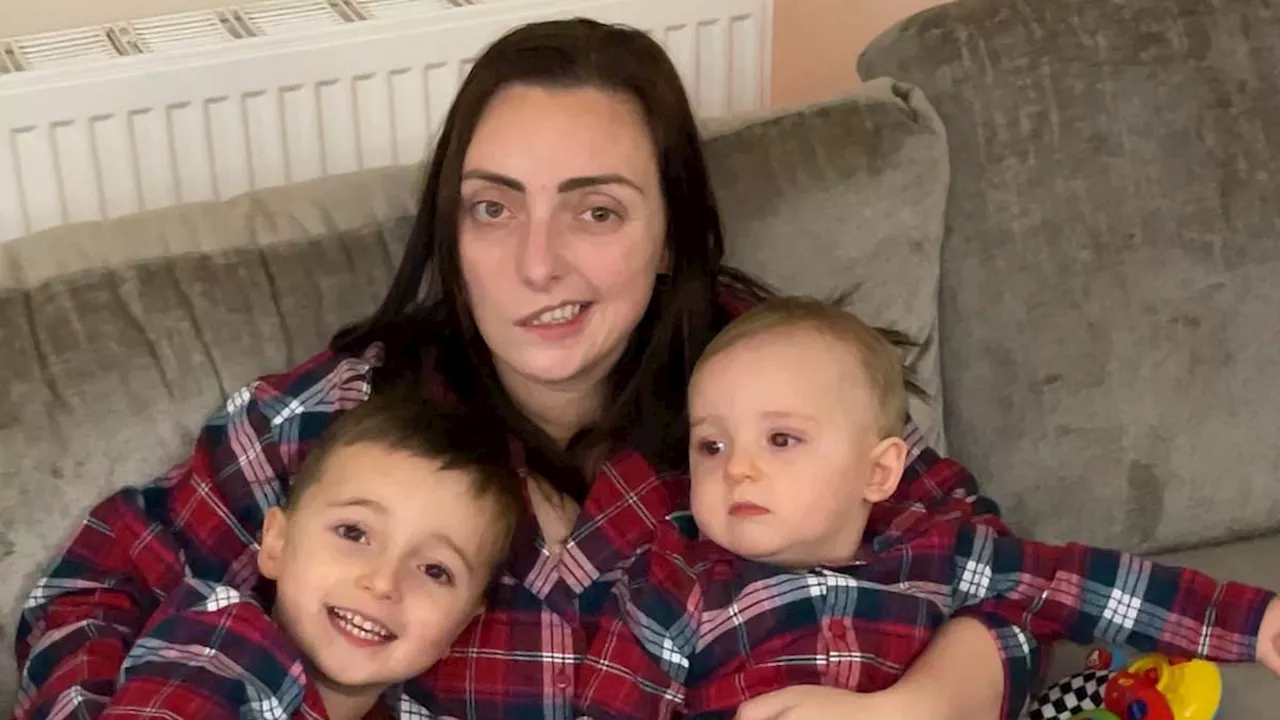 Mother Left Unable to Smile After Rare Brain Tumor DiscoveryJade-Marie Clark, a 32-year-old mother from Glasgow, initially attributed her twitchy eye to stress, but later discovered it was a rare brain tumor. After successful surgery, she now faces the challenges of facial palsy and hopes for a future restoration of her smile.
Mother Left Unable to Smile After Rare Brain Tumor DiscoveryJade-Marie Clark, a 32-year-old mother from Glasgow, initially attributed her twitchy eye to stress, but later discovered it was a rare brain tumor. After successful surgery, she now faces the challenges of facial palsy and hopes for a future restoration of her smile.
Read more »
